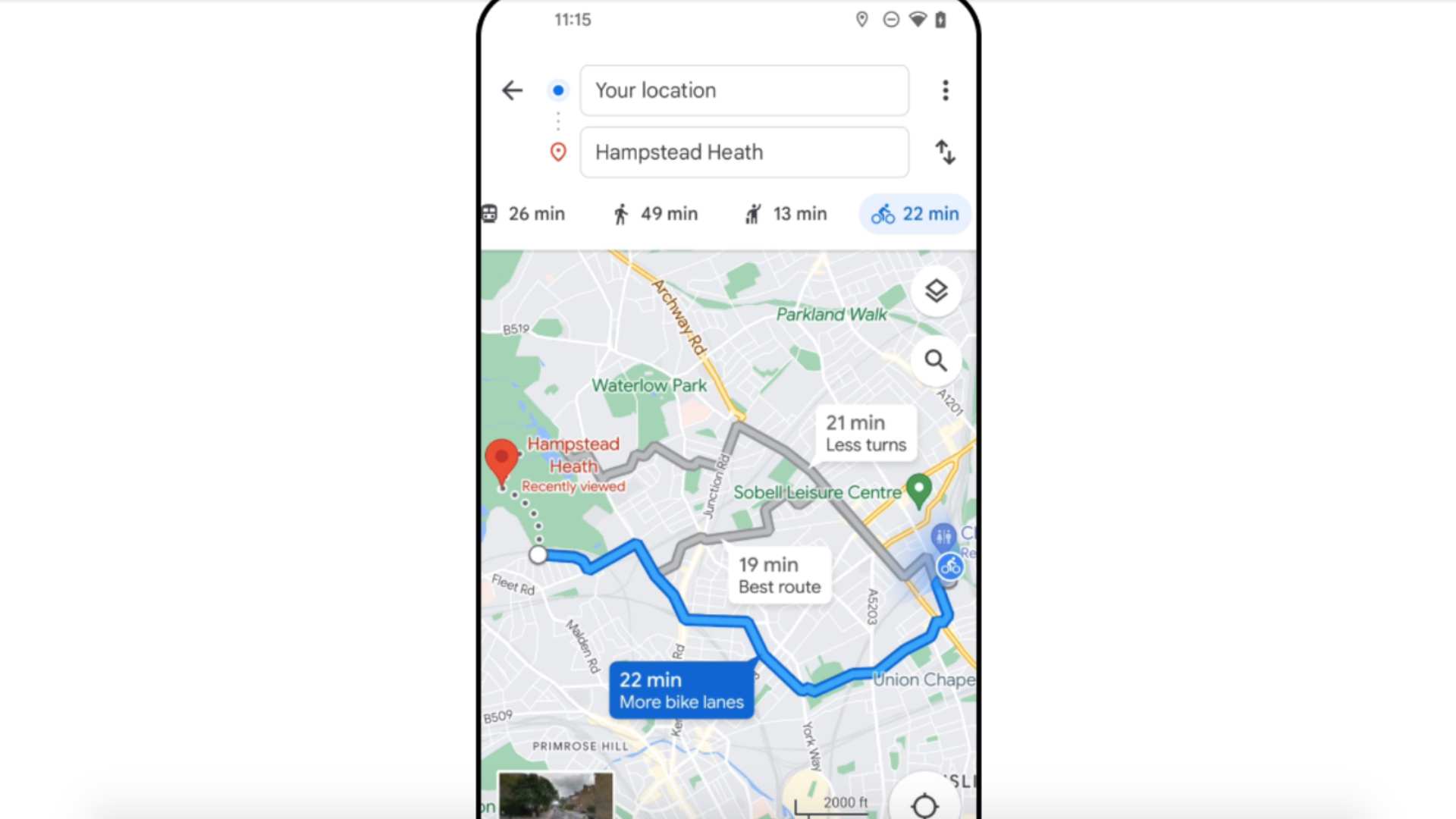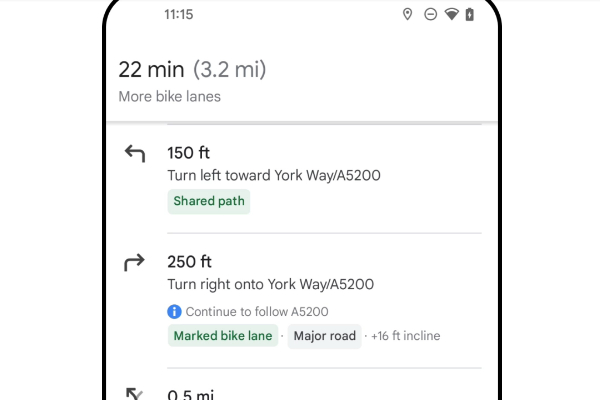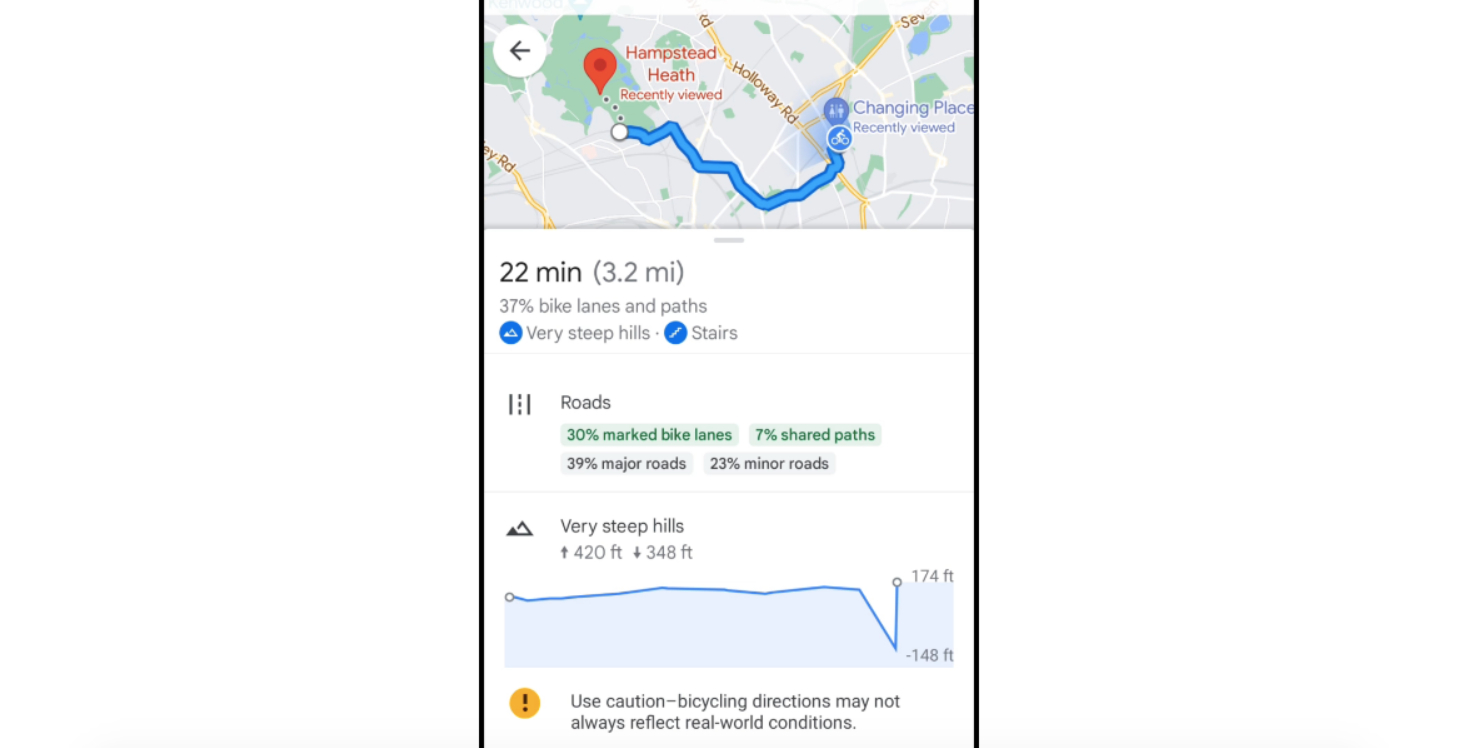Google Maps upgrades its cycle navigation with added detail - including warnings of heavy traffic and steep hills
Bike routes will now highlight potential difficulties as well as supplying detailed information about road type and providing comparisons

The latest race content, interviews, features, reviews and expert buying guides, direct to your inbox!
You are now subscribed
Your newsletter sign-up was successful
Google Maps has announced significant updates to its cycling route information, allowing users to better prepare for a journey on two wheels. Additional details include warnings for heavy traffic and steep hills as well as enabling ‘easier’ comparisons between bike routes.
According to its blog, Google highlights a more than 40% increase in cycling worldwide “over the past few months”, which it attributes in part to rising fuel prices and warmer weather. While its source for this statistic goes unnamed it appears that the growing number of journeys taken by bike have warranted a mapping upgrade some 12 years since Maps first began providing directions for cyclists.

Google says that alongside seeing estimated journey times and route elevation, you’ll now get specific details such as stairs and increased traffic. It’s all part of what Google describes as a “highly detailed breakdown of the route itself so you can know at a glance what type of road you’ll be biking on – like a major road vs. a local street.” The desired result, one presumes, is no more surprises, especially on new journeys where an unknown hill or a busy road can turn a pleasant cycle into something a little more challenging.

Judging by screenshots featured on the Google blog, added detail includes a descriptive breakdown of the roads, including ‘marked bike lanes’, ‘shared paths’ and ‘major’ or ‘minor’ roads, delivered as percentage of the chosen route. If you prefer to use your smartphone over a dedicated GPS cycling computer, this information also accompanies the step-by-step directions alongside notifications of inclines, measured in feet.
Some of the information, such as route elevation, journey time and the ability to compare routes with the same start point and destination, has existed for several years. But additional detail and clarity is rarely a bad thing, with the new updates taking advantage of “granular details” as when the data becomes available.
The latest race content, interviews, features, reviews and expert buying guides, direct to your inbox!
Luke Friend has worked as a writer, editor and copywriter for over twenty five years. Across books, magazines and websites, he's covered a broad range of topics for a range of clients including Major League Baseball, Golf Digest, the National Trust and the NHS. He has an MA in Professional Writing from Falmouth University and is a qualified bicycle mechanic. He has been a cycling enthusiast from an early age, partly due to watching the Tour de France on TV. He's a keen follower of bike racing to this day as well as a regular road and gravel rider.